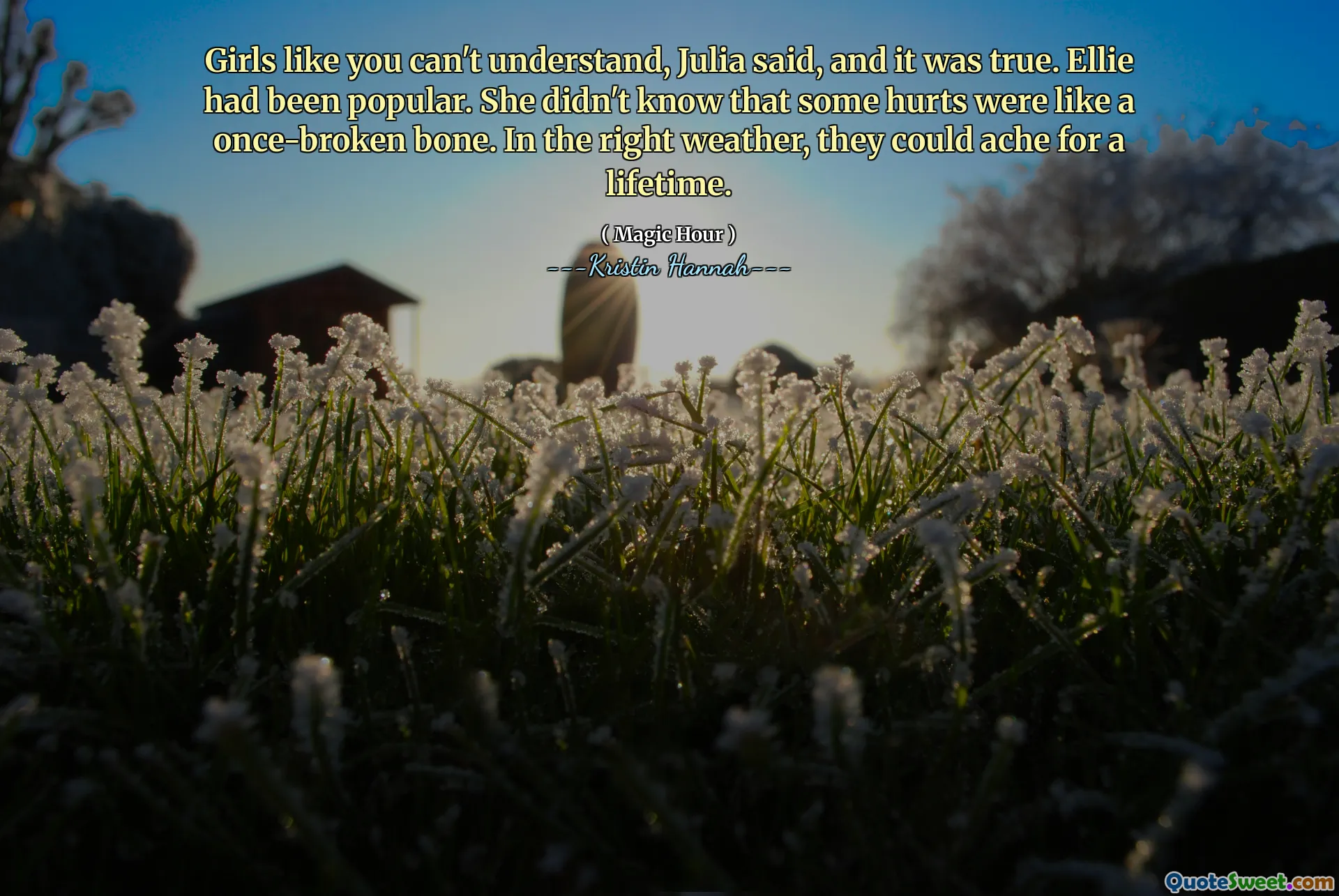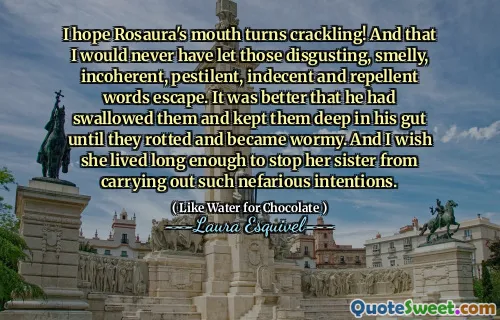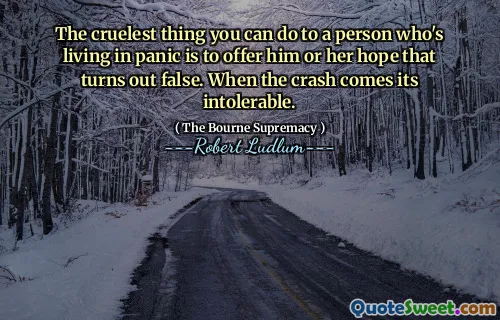
Girls like you can't understand, Julia said, and it was true. Ellie had been popular. She didn't know that some hurts were like a once-broken bone. In the right weather, they could ache for a lifetime.
This quote sheds light on the often invisible wounds that people carry beneath their outward appearances. Ellie, having experienced popularity and social success, perhaps believed herself to be emotionally resilient. However, the analogy of a hurt being like a once-broken bone emphasizes that some pain does not fully heal with time or superficial remedies; instead, it leaves lasting impressions. The mention that these hurts can ache for a lifetime resonates with the idea that certain emotional scars, especially those that are overlooked or dismissed, can persist and influence one’s experience even years later. It highlights a silent battle many face—public success does not always equate to internal well-being, and the true depth of someone’s pain can be hidden beneath layers of confidence or social achievement. Julia's comment about girls like Ellie not understanding hints at a generational or experiential divide, where perhaps empathy or understanding is missing, and preconceived notions create distance. Such a reflection urges us to be more compassionate, to recognize that everyone bears unseen struggles, and that emotional wounds, no matter how small they seem to others, can be deeply impactful. Life teaches us that healing isn’t always about time passing; sometimes, acknowledgment, empathy, and support are necessary for true recovery. Recognizing the quiet persistence of these emotional aches can foster more genuine connections and a deeper understanding of people’s internal worlds.




